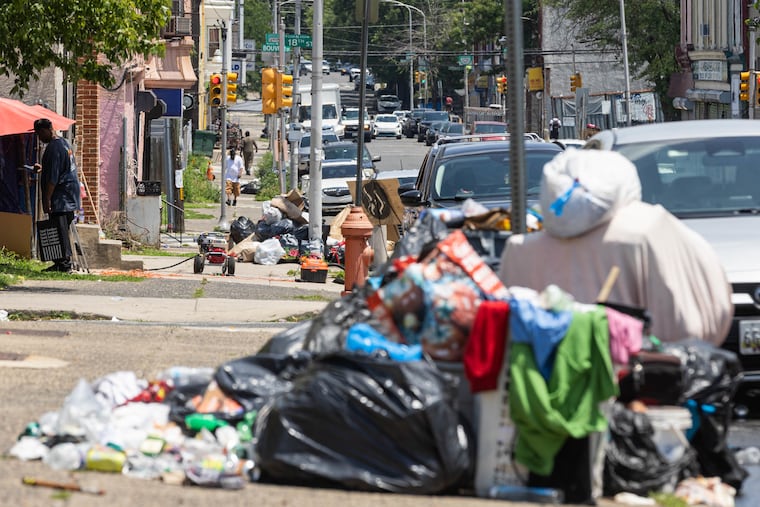Philadelphia trash strike continues; both sides urged to reach resolution as disagreement persists.
As the strike by municipal workers in Philadelphia enters its second week, the city’s streets continue to bear the burden of uncollected trash, highlighting an urgent need for negotiation between Mayor Cherelle L. Parker and union representatives. The work stoppage, initiated in response to ongoing contract disputes, requires immediate attention and concessions from both parties to restore normalcy to city services.
The strike commenced on July 1, when approximately 9,000 members of the American Federation of State, County and Municipal Employees District Council 33 (AFSCME DC 33) walked off the job at 12:01 a.m. Tensions have escalated as union leaders accuse Mayor Parker of undervaluing their demands while allegedly granting herself a significant pay increase. In a recent press conference, the mayor asserted her unwillingness to capitulate to the union’s requests, even acknowledging the potential political ramifications this may have on her tenure.
The lack of progress in negotiations is a troubling sign, with only two formal sessions held since the strike began. Open communication is vital; prolonged silence between the two sides will only exacerbate the current situation. The stakes are high not just for the city’s nearly 1.6 million residents but also for the financial stability of the municipal workforce. City finances are precarious, with projected funds potentially dwindling to million by fiscal year 2029 according to a recent report by the Philadelphia Intergovernmental Cooperation Authority (PICA), underscoring the complexity of the negotiations ahead.
While the average salary of union members hovers around ,000—a figure that many experts argue does not constitute a living wage—historical factors play a significant role in today’s labor landscape. Past concessions from the union during fiscal crises have left a legacy of underpayment and dissatisfaction. Additionally, Parker’s previous decision to award a one-time 5% raise to these workers complicates future negotiations, setting a challenging precedent.
Moreover, the city has financial capabilities that could be leveraged to provide immediate relief. An equitable compromise could involve a 4% raise, balancing the union’s request for a 5% increase with the city’s counter-offer of 3%. Discussing possible hazard pay for workers active during the pandemic could further incentivize resolution without jeopardizing the city’s financial obligations in the long term.
Ultimately, the imperative for Mayor Parker and union president Greg Boulware is clear: they must engage in constructive dialogue that leads to an expeditious resolution, benefiting not only the city and its workers but also the residents who rely heavily on municipal services. The prosperity of Philadelphia hinges on achieving a fair and timely conclusion to this labor dispute, and stakeholders on both sides must prioritize the city’s interests.







